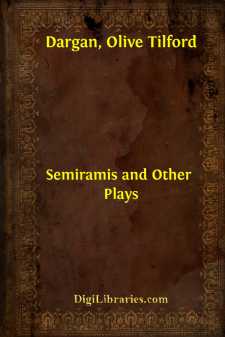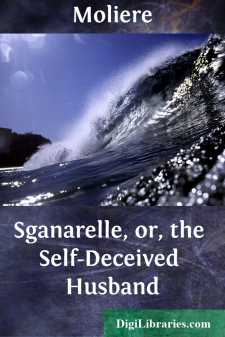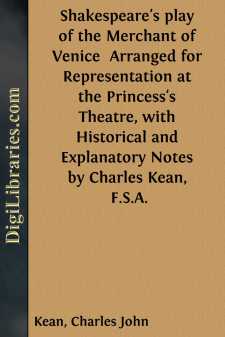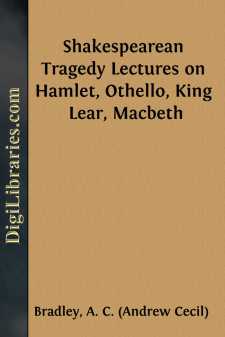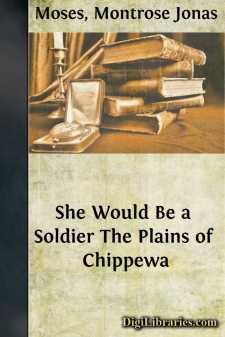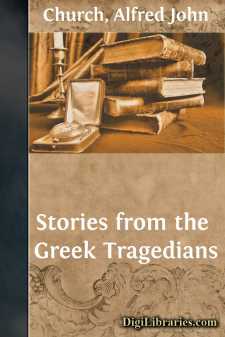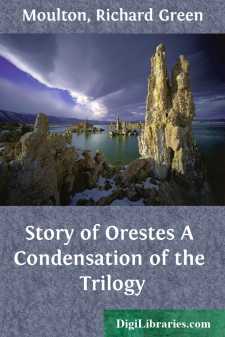Drama Books
Sort by:
ACT I. Scene: Within the tent of Menones, on the plain before Nineveh. Left, centre, entrance to tent from the plain. Curtains rear, forming partition with exits right and left of centre. The same at right, with one exit, centre. Couch rear, between exits. From a tent-pole near exit, right centre, hang helmet and a suit of chain armor. Sola parts curtains rear, left, and looks out, showing effort to...
more...
by:
Moliere
This play seems to have induced several English playwrights to imitate it. First, we have Sir William D'Avenant's The Playhouse to be Let, of which the date of the first performance is uncertain. According to the Biographia Britannica, it was "a very singular entertainment, composed of five acts, each being a distinct performance. The first act is introductory, shows the distress of the...
more...
ACT I. Various groups of Nobles, Citizens, Merchants, Foreigners, Water-Carriers, Flower Girls, &c., pass and repass. Procession of the Doge, in state, across the square. ANTONIO, SALARINO, and SALANIO come forward. Ant. In sooth, I know not why I am so sad;It wearies me; you say, it wearies you;But how I caught it, found it, or came by it,What stuff 'tis made of, whereof it is born,I am to...
more...
LECTURE I THE SUBSTANCE OF SHAKESPEAREAN TRAGEDY The question we are to consider in this lecture may be stated in a variety of ways. We may put it thus: What is the substance of a Shakespearean tragedy, taken in abstraction both from its form and from the differences in point of substance between one tragedy and another? Or thus: What is the nature of the tragic aspect of life as represented by...
more...
by:
Oliver Goldsmith
Excuse me, sirs, I pray—I can't yet speak—I'm crying now—and have been all the week."'Tis not alone this mourning suit," good masters:"I've that within"—for which there are no plasters!Pray, would you know the reason why I'm crying?The Comic Muse, long sick, is now a-dying!And if she goes, my tears will never stop;For as a player, I can't squeeze...
more...
MORDECAI MANUEL NOAH (1785-1851) Mr. Noah was born in Philadelphia, July 19, 1785, the son of Portuguese Jewish descent, it being stated by some sources that his father not only fought in the Revolutionary Army, but was a sufficient friend of George Washington to have the latter attend his wedding. In his early years, he was apprenticed, according to the custom of the day, to a carver and gilder, but...
more...
by:
Bronson Howard
BRONSON HOWARD (1842-1908) The present Editor has just read through some of the vivacious correspondence of Bronson Howard—a sheaf of letters sent by him to Brander Matthews during a long intercourse. The time thus spent brings sharply to mind the salient qualities of the man—his nobility of character, his soundness of mind, his graciousness of manner, and his thorough understanding of the dramatic...
more...
by:
Thomas Morton
This comedy excites that sensation, which is the best security for the success of a drama—curiosity. After the two first acts are over, and pleasantly over, with the excellent drawn characters of Ashfield and his wife, and the very just satire which arises from Sir Abel's propensity to modern improvements—the acts that follow excite deep interest and ardent expectation; both of which are so...
more...
The Story Of The Love Of Alcestis. Asclepius, the son of Apollo, being a mighty physician, raised men from the dead. But Zeus was wroth that a man should have such power, and so make of no effect the ordinance of the Gods. Wherefore he smote Asclepius with a thunderbolt and slew him. And when Apollo knew this, he slew the Cyclopés that had made the thunderbolts for his father Zeus, for men say that...
more...
MEMORANDUM The Sacred Legends touched by this Trilogy would be familiar, in outline, to the Auditors: e. g.: The woes of the House of Atreus: the foundation of them laid by Atreus when, to take vengeance on his brother Thyestes, he served up to him at a banquet the flesh of his own sons; His grandsons were Agamemnon and Menelaus: Menelaus' wife, Helen, was stolen by a guest, Paris of Troy, which...
more...


